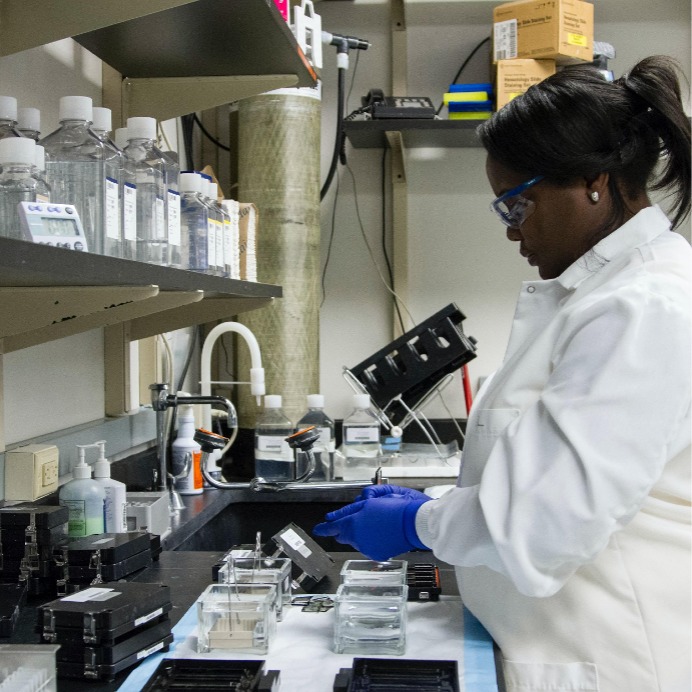By continuing to use our site, you consent to the processing of cookies, user data (location information, type and version of the OS, the type and version of the browser, the type of device and the resolution of its screen, the source of where the user came from, from which site or for what advertisement, language OS and Browser, which pages are opened and to which buttons the user presses, ip-address) for the purpose of site functioning, retargeting and statistical surveys and reviews. If you do not want your data to be processed, please leave the site.
The Voice of People With Breast Cancer
Education
Our Voices Blog
Tag : breast cancer
Metastatic Breast Cancer: The Latest Research and Clinical Trials
Research on breast cancer, and more specifically, metastatic breast cancer (mBC), is critical in helping us better understand this disease. While widespread knowledge of mBC is still limited, there are studies that look specifically at the detection, prognosis and treatment of this type of breast cancer. Similarly, clinical trials on metastatic breast cancer are crucial in helping researchers improve the current standard of care. Below are some of the latest research and some currently recruiting clinical trials on metastatic breast cancer.
Lifestyle and Nutrition Considerations for Breast Cancer Patients Series, Part 4: The True “Does Sugar Fuel Breast Cancer?” Story
Sugar, in all its stark white, sparkling glory is an enormously popular, widely misunderstood, and a hotly debated topic in the breast cancer world. Rarely a week passes when I don’t hear or read “Sugar feeds breast cancer”, proclaimed with absolute certainty. People accept this declaration as truth, yet I ask; does it really?
Estro-Belly
I have been struggling with my body image these last 8 weeks. The funny thing is that it’s not with the two scars I have running across my chest. I have actually adapted well to that change, even with my right scar being lumpy and misshapen. What I have been struggling with is my weight gain thanks to Tamoxifen. Without estrogen, my mid-section is taking on the appearance of a barrel. A barrel made of pudding, with an oatmeal crust! Having always been fit and healthy, I am finding myself disturbed by this body morphing of mine.
I Had to Work During Cancer Treatment and it Sucked
I worked during my entire breast cancer treatment. I didn’t want to. I had to. I live alone. I don’t have a husband or boyfriend. I pay my bills on time and by myself. Yes, it was a choice, but it was a horrible one.
Lifestyle and Nutrition Considerations for Breast Cancer Patients Series, Part 3: Links Between Alcohol and Breast Cancer Recurrence: Can Beer and Wine Increase your Risk?
Want to meet me for a drink? Grab a glass of wine and discuss the day and life in general? In my pre-breast cancer days, I loved my red wine. Whether catching up with a friend or sharing a meal with my husband, a glass (or two) of a robust red was de rigueur. Occasionally I’d sip dry Chardonnay, but those peppery, heavy Zin’s stole my heart. On two separate trips to Europe, wine figured prominently in the itinerary. Visiting Burgundy, France and the Tuscan region of Italy, how could it not? One glorious afternoon in Italy, my husband and I toured an obscure winery. We tasted a variety of wines with a group of folks we’d met at a cooking class earlier that day. Someone suggested this hidden gem, and we eagerly tagged along. We all knew each other only from the few hours we’d cooked pasta together. It’s a memory I’ll treasure forever. In this precious life there are so many simple pleasures to enjoy. A glass of really good wine is one.
Bringing Awareness to Male Breast Cancer
When most people picture someone with breast cancer, they often think about women; many are shocked to find out that men can also get breast cancer. While male breast cancer represents less than 1% of all breast cancer cases, it is still a disease that men should be aware of. September is Men’s Cancer Awareness Month and for today’s blog we will be discussing male breast cancer to bring awareness to this disease.
Five Ways I’m Creating Joy in My Life
It’s funny how breast cancer changed the way I feel about myself and my life. Not in a ha-ha sense, although trust me, I would like to laugh more. And not in a questioning kind of way either, although I did torture myself during the first couple of weeks after my diagnosis, looking for the answer to explain why I had breast cancer. As far as I was concerned it was because I never wore sunscreen as a kid; I drank and smoked my way through my twenties; worked 80-hour, ladder-climbing work weeks in my thirties and went through a heartbreaking divorce that left me feeling like road kill in my forties. Except that it wasn’t.
Talking Palliative Care Part 6: Funeral Planning: How this dreaded task may actually provide some relief
Planning a funeral, especially if it’s your own, might be one of the most painful and challenging tasks that any of us will have to complete. The very idea can be overwhelming, anxiety causing and heartbreaking to even think about. That being said, so many people share that while they dreaded the idea of having to plan their own funeral, they often experienced a tremendous sense of peace and the feeling of having a huge weight lifted off their shoulders after completing this process. Since the period after the death of a loved one is incredibly distressing to families, pre-planning a funeral can relieve them of some of the stress and can also give you peace of mind that your wishes are being carried out.
Coping With Scanxiety
Scanxiety may not officially be a real word, but the feelings it brings about are real. Very Well Health defines scanxiety as the term used to “describe the anxiety people with cancer feel while waiting for scans”. Regardless of whether the scans are for diagnostic purposes, monitoring treatment, checking recurrence or as a check-up, individuals can experience apprehension before, during, and while waiting for the results of their scans. The apprehension and fear that is felt can range from feeling claustrophobic in the scan machine to imagining the worst-case scenario of the scan results. Many people experience scanxiety so it is important to learn coping techniques that help eliminate the anxiety.
Breast Cancer and Younger Women
Breast cancer is often associated with older women. The latest statistics on breast cancer show that 83% of breast cancer cases occur in women over 50 years old. In fact, age is a risk factor of developing breast cancer, with ones risk increasing, the older they get. The rates of breast cancer increase after 40 years old and peak at 70 years old.
Breastfeeding Following a Breast Cancer Diagnosis
Breastfeeding has been linked to a few health benefits such as its ability to reduce the risk of being diagnosed with breast cancer. This may be because of reduced exposure to estrogen as well as the shedding of breast tissue. But what happens when breastfeeding cannot reduce your risk of breast cancer because you have already been diagnosed? While breastfeeding comes with its own challenges, having a newborn while dealing with a breast cancer diagnosis comes with its own unique complications. One of these is knowing whether you can breastfeed your child and how to go about it.
My Temporary Tamoxifen Breakup is Making Me Feel All the Feels
I hope I can write this column without crying. Or at least if I do get emotional, that I won’t need to stop a million times while I wait for the sobbing to ease up so that I can see clearly enough to continue typing. And no, I’m not being dramatic.
CBCN’s Newest Digital Magazine: Complementary Therapies
CBCN produces curated magazines that focus on topics that are relevant to the breast cancer community. These magazines provide patients with an easy-to-access method of getting information on various breast-cancer-related topics. The articles featured in our magazine are pulled from Our Voices blog and are created so that breast cancer patients can access certain themes/topics in one place.
My Eczema Turned Out to be Paget’s Disease – A Rare Breast Cancer
I’m writing this as a PSA for all women. We’re always told to check for lumps and to get mammograms. However, Paget’s disease of the breast is a breast cancer that until October, I had never heard about.
The Myth That Cancer Does Not Discriminate
Cancer does not discriminate. It's an often-repeated phrase, used to highlight the prevalence of cancer. The idea behind it is that whether you are young, old, poor, rich, Black, White, we all face an equal risk of being diagnosed with cancer. Unfortunately, like many other aspects of our society, cancer does in fact discriminate. Below we provide 10 research findings on breast cancer specifically that highlight the unequal nature of a breast cancer diagnosis. These studies highlight that breast cancer affects social groups differently and while some of this difference is due to the insidious nature of cancer itself, some of these findings are due to systemic and societal inequalities that become highlighted when we look at health.
Have Hair, Do Care
Breast cancer made my hair thicker. And wavy-er. Not right away obviously. It’s not like it was a special prize I was gifted with to make up for the shock and fear of being diagnosed with breast cancer.
Indigenous Traditional Healing
Indigenous Traditional Healing is a holistic practice that aims to treat imbalances in a person’s body, mind, emotions, and spirit together.These imbalances are thought to be the cause of illness and to result from ignoring sacred, natural laws. Tradition healing practices are distinct and culturally specific to the people who are practicing them. In Canada, First Nations, Inuit, and Métis view health as a balance of physical, emotional, mental and spiritual elements. These four elements can be impacted by the individual, their family, their community and the environment. For example, connection to the land is an important aspect of healing for the Inuit. Being out on the land and away from one’s community can bring calmness to the body and mind by removing outside influences and in turn promote personal well-being.
The Impact of COVID-19 on Breast Cancer Patients Part 2: Impact of Your Cancer Treatment and Management on Your Immune System
The risk of a COVID-19 diagnosis for breast cancer patients is still not completely known. Studies have come that show that cancer patients are more at risk of adverse effects if they develop COVID-19. However, a few studies state that compared to other cancer patients, breast cancer patients are at a lower risk of serious illness. The stage of breast cancer also seems to play a role in one’s risk level.
ASCO 2020 Conference Goes Virtual
As with most other events planned for this year, the ASCO 2020 Conference was rescheduled as a virtual event, originally set to be held in Chicago from May 29th to 31st. The American Society of Clinical Oncology (ASCO) Conference is a key research conference that brings together clinicians, researchers, and patient advocates from around the world. The conference included over 5,000 abstracts, posters, slides and videos, a day of video broadcasts and around 147 virtual exhibits. While we weren’t able to come together in person this year, ASCO successfully hosted a virtual conference that shared an incredible amount of research that’s relevant to breast cancer patients. Below are some of the highlights.
Life’s Journey
I would have never thought that I would be telling my story to a large group of people but today I consider it an honour.























